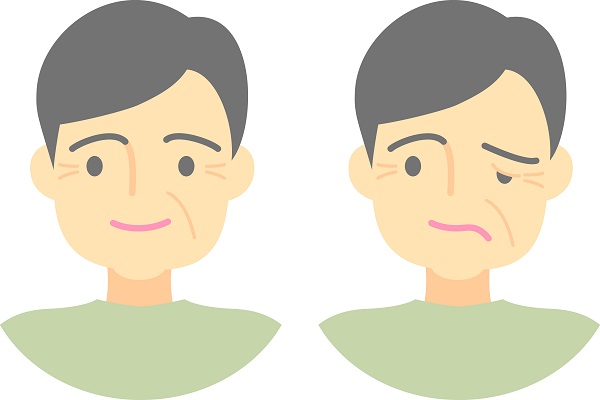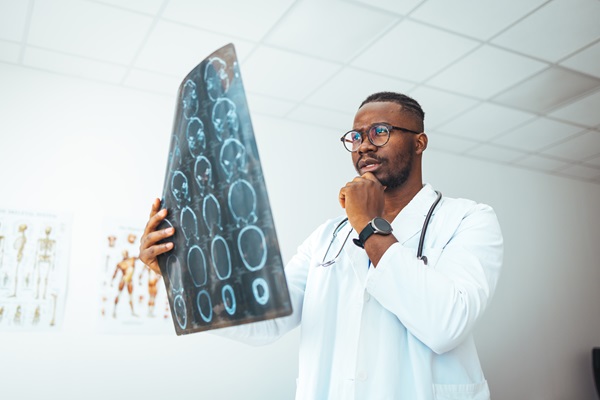A Neurosurgeon Discusses Facial Paralysis

Looking for information on facial paralysis? Read on to learn more about how this condition is diagnosed and treated. When the face is unable to function properly, the result may be a number of negative things, such as impaired speech, drooping, and even drooling.
An overview of facial paralysis
The following review covers what facial paralysis is, how a neurosurgeon addresses it, and a few other important things to know:
Symptoms and warning signs
Warning signs of facial paralysis include impaired speech, drooling, drooping of certain areas of the face, and loss of feeling. In addition, when experiencing facial paralysis, it is common to feel numb or like you have no function in the face.
Causes of facial paralysis
Typically, facial paralysis is caused by a health condition that already exists within the body. Some common conditions that cause it include Moebius syndrome, skull trauma, acoustic neuromas, invasive carcinomas, and even viruses such as herpes and EPV.
In other cases, facial paralysis may be a result of a recent surgical procedure within the brain, spine, or mouth. Procedures such as oral surgery, facelifts, skull base surgery, mastoids, or nerve blocking are all known to cause temporary facial paralysis.
Rarer, but still a possibility is the side effects of certain medications. There are many side effects to medications and not everyone reacts the same way.
Treatment
The area of the face that is affected by the paralysis will determine what type of treatment is administered. Outlined below are some of the most common approaches:
- Eyelid correction is often recommended when the eyelids are affected as a result of facial paralysis. Typically, small plates are placed underneath the skin of the upper eye. This helps to reduce drooping or sagging around the eyes
- Nerve grafts are beneficial when the facial nerves have been affected. This procedure involves the transfer of a nerve, typically from a leg muscle. It is then transferred to the healthy or normal part of the face as a way to branch it to the side that is paralyzed
- Tendon transfer can restore movement and feel to the mouth and lips. This procedure is most beneficial to those who experience sagging or drooping in the mouth, a common symptom of facial paralysis
- Injections help to regrow the nerves and restore function in the face after paralysis. Neurosurgeons may recommend certain injections to weaken other areas of the face that are not affected by the paralysis. This will help to restore facial symmetry that may be lost as a result of paralysis
- Contouring may be necessary when surgery leaves the facial area paralyzed. This procedure relies on a transfer of fats and tissues from another part of the body (typically the thigh)
There are various ways to treat facial paralysis, but those that are listed above are the most common.
A neurosurgeon's role
Neurosurgeons spend their days diagnosing, managing, and treating conditions that are directly related to the brain, spine, and nervous system. As far as facial paralysis goes specifically, neurosurgeons will run a series of tests to determine what the cause may be. From there, an appropriate treatment plan will be put into place, which may include a surgical procedure.
The bottom line
When experiencing facial paralysis, it is highly advised to visit a specialist right away. A neurosurgeon will likely be one of the main points of contact as certain treatment measures will have to be explored. To find out more or to get scheduled for an appointment, contact us today.
Get more information here: https://arizonaneurosurgeon.com or call Randall Porter, M.D. at (602) 603-8951
Check out what others are saying about our services on Yelp: Facial Paralysis in Phoenix, AZ.
Recent Posts
A brain surgeon can diagnose and treat neurological problems. A simple exam can help create the right treatment plan for these ailments. Seeing this healthcare professional is crucial in improving your quality of life. Here are the details on how your brain surgeon addresses urgent neurological problems.This healthcare professional will perform an extensive neurological exam…
The Journal of neurosurgery states that about 12.8 million people worldwide require neurosurgery treatments yearly. The term "neurosurgery" refers to surgical treatments performed on the central nervous system, which consists of the spinal column, spine, and brain.These procedures might be recommended to treat various issues like herniated discs, spinal cord disorders, and nerve pain. A…
Sciatica is a debilitating condition characterized by pain radiating along the path of the sciatic nerve. This condition can significantly impact your quality of life. While most cases are treatable with conservative treatments like physical therapy, medication, and lifestyle adjustments, some may require surgery.Surgery may be a viable option when a patient continues to feel…
Spinal stenosis is a condition that affects millions of individuals worldwide, primarily those over the age of 50. It occurs when the spaces within the spine narrow, putting pressure on the spinal cord and nerves. This spinal disorder can lead to pain, weakness, and reduced mobility, causing a severe impact on a person's quality of…


